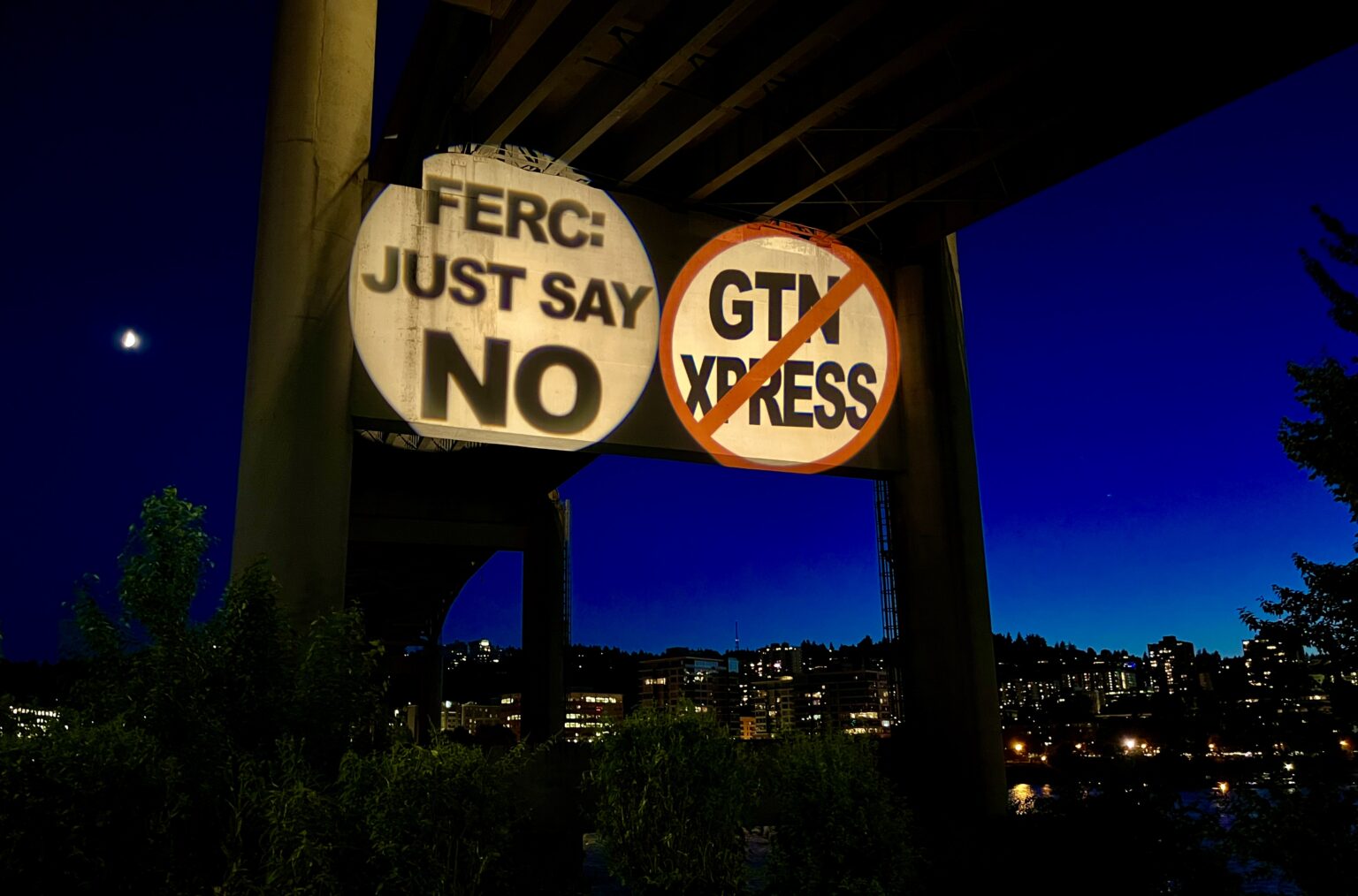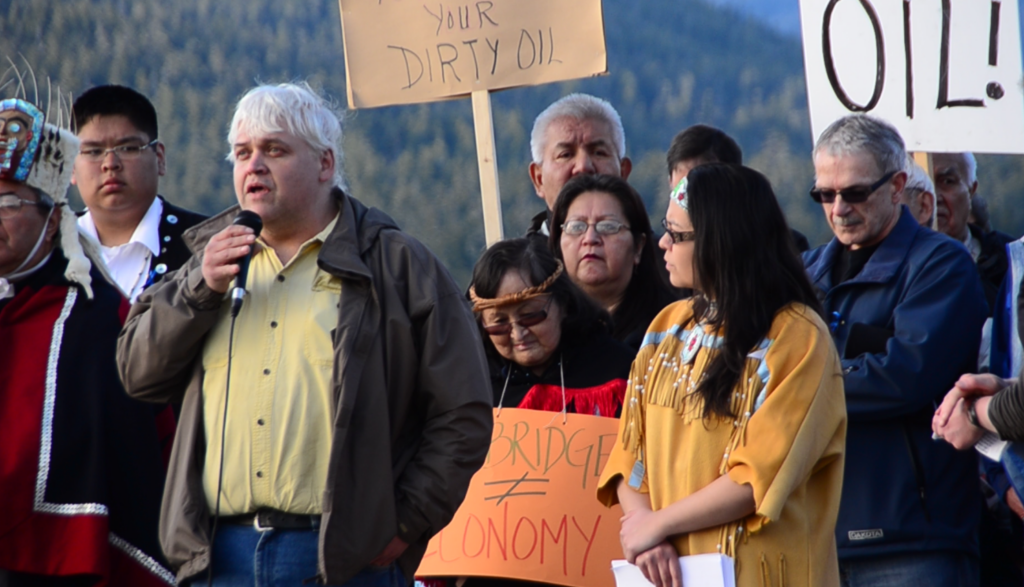On October 19, the Federal Energy Regulatory Commission (FERC) approved a certificate for TC Energy’s GTN Xpress project, authorizing the expansion of fracked gas supply into the Pacific Northwest. The approval came despite vocal opposition from many members of Congress and the governors of Washington and Oregon.
The 1,300-mile GTN pipeline runs from the U.S.-Canadian border, down through Idaho, Washington, and Oregon and then terminates at the Oregon-California border, bringing fracked gas from British Columbia to the U.S. West Coast.
TC Energy’s proposal approved by FERC will dramatically increase the throughput of the existing pipeline by upgrading three compressor stations, which are facilities that increase pressure in the pipeline to propel gas forward.
The expansion of the gas pipeline system could add about 150,000 dekatherms per day of additional capacity — nearly 55 billion cubic feet, roughly the equivalent to powering 742,000 homes.
The company has argued that more gas is needed to meet demand in the Pacific Northwest. However, many view it as a huge setback to regional climate efforts and, as DeSmog previously reported, the assertion that demand will grow in the coming decades belies the relatively stringent climate regulations on the books in multiple states in the region, which require gas utilities to slash greenhouse gas emissions. In Oregon, for instance, gas utilities must cut their emissions in half by 2035 and by 90 percent by 2050, from a 2017-2019 baseline.
Public officials across the Pacific Northwest submitted letters opposing the project to FERC over the past year. Officials who sent letters of opposition include Washington Gov. Jay Inslee (D) and Oregon Gov. Tina Kotek (D); Sens. Jeff Merkley (D-OR), Ron Wyden (D-OR), Maria Cantwell (D-WA), Patty Murray (D-WA), and Alex Padilla (D-CA); the Attorney Generals of Washington, Oregon, and California; as well as several members of the House of Representatives. The Columbia River Inter-Tribal Fish Commission, which represents several regional tribes, also opposes the pipeline proposal.
On October 18, a day before FERC’s announcement, Murray, Merkley, Wyden, and Cantwell sent a joint letter to FERC commissioners.
“Put simply, there is no way that our states can meet their emissions goals if this project moves forward,” the senators wrote.
Rep. Andrea Salinas (OR-6) sent her own letter as well.
“[GTN Xpress] is antithetical to Oregon’s ongoing efforts to transition away from fossil fuels and to combat climate change,” Salinas wrote.

The decision is the latest in a series of federal approvals for oil, gas pipeline, and LNG export projects, which have angered activists around the country.
“With this decision to approve the GTN Xpress expansion, the Biden administration is again failing on its promises to protect environmental justice communities and the climate. Any expansion of fossil fuels is incompatible with a livable future,” said Oil Change International’s U.S. Program Co-Manager Allie Rosenbluth.
Northwest climate groups had held out some hope that the vocal opposition to the project from elected officials and a wide variety of community organizations would have swayed FERC. In addition, the fact that there was no demonstrated need for more gas should have worked against the project’s prospects, opponents believed.
But FERC was unmoved and greenlighted the project on October 19. Climate groups blasted the decision.
“FERC failed to listen to Senators, Governors, State Attorneys General, Tribes, and the public in its rubber stamp of unnecessary fracked gas in the Northwest,” said Audrey Leonard, Staff Attorney of Columbia Riverkeeper.
Opponents noted that TC Energy has presided over safety mishaps and explosions at other pipelines around the country. Most recently, the company’s gas pipeline in Virginia exploded in July of this year.
FERC has a well-known track record of granting favorable decisions to the gas industry, having approved 425 gas projects between 2000 and 2021. It only rejected two projects in that 20-year period.
“The GTN Xpress proposal would lock in a huge new influx of fracked gas for decades at the very moment that our communities are experiencing accelerated climate change impacts such as frequent drought and summers of smoke,” said Satya Austin-Opper, of 350 Deschutes.
Columbia Riverkeeper and Oregon-based Rogue Climate said they would file for a petition for a rehearing. They have 30 days to do so, after which FERC will have an additional 30 days to respond. TC Energy cannot begin construction until that appeal is resolved.
Subscribe to our newsletter
Stay up to date with DeSmog news and alerts







